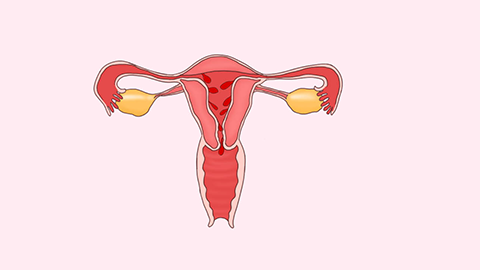What should be noted after endometrial surgery?
Generally, after endometrial surgery, attention should be paid to wound care, dietary regulation, rest management, hygiene, and regular follow-up visits. A detailed analysis is as follows:

1. Wound Care: Close observation of the wound is necessary after surgery. If laparoscopic surgery was performed, there may be 1–3 puncture wounds on the abdomen. Keep the dressing clean and dry, avoiding contact with water to prevent infection. If symptoms such as redness, swelling, discharge, or severe pain occur at the wound site, inform the doctor promptly. Dressings are generally changed 1–2 days after surgery, and suture removal timing depends on wound healing. Avoid pulling or straining the wound during this period.
2. Dietary Regulation: Initially after surgery, consume bland and easily digestible foods such as rice water and porridge. Gradually transition to foods rich in protein and vitamins, such as eggs, lean meat, and fresh vegetables, to promote wound healing. Avoid spicy, cold, or greasy foods that may irritate the intestines and cause discomfort. Drink plenty of water to maintain smooth bowel movements and reduce abdominal pressure that could affect the uterus.
3. Rest Management: Ensure adequate rest after surgery and avoid strenuous exercise and heavy physical labor to prevent wound tearing or bleeding. Bed rest for 1–2 days is generally recommended, after which appropriate ambulation, such as walking, may be resumed to promote recovery. Avoid prolonged standing or sitting. High-intensity activities such as running or jumping rope should be avoided for 1 month after surgery.
4. Hygiene: Maintain cleanliness of the external genitalia. Wash the external genital area daily with warm water, change underwear frequently, and avoid tub bathing and sexual intercourse to prevent bacterial infection. Light vaginal bleeding after surgery is normal. However, if bleeding exceeds menstrual flow or is accompanied by an unusual odor or abdominal pain, seek medical attention promptly. Use personal sanitary products exclusively to avoid cross-infection.
5. Regular Follow-up: Follow the physician's instructions for regular follow-up visits. An ultrasound is usually performed about 1 month after surgery to assess endometrial recovery and check for any residual tissue or adhesions. If symptoms such as menstrual abnormalities or persistent abdominal pain occur, seek medical care promptly. Bring medical records and test reports to follow-up visits to assist the physician in accurately assessing recovery progress.
Strictly follow the above postoperative instructions after endometrial surgery, maintain healthy lifestyle habits, and seek timely medical attention for any abnormalities to ensure proper recovery.




